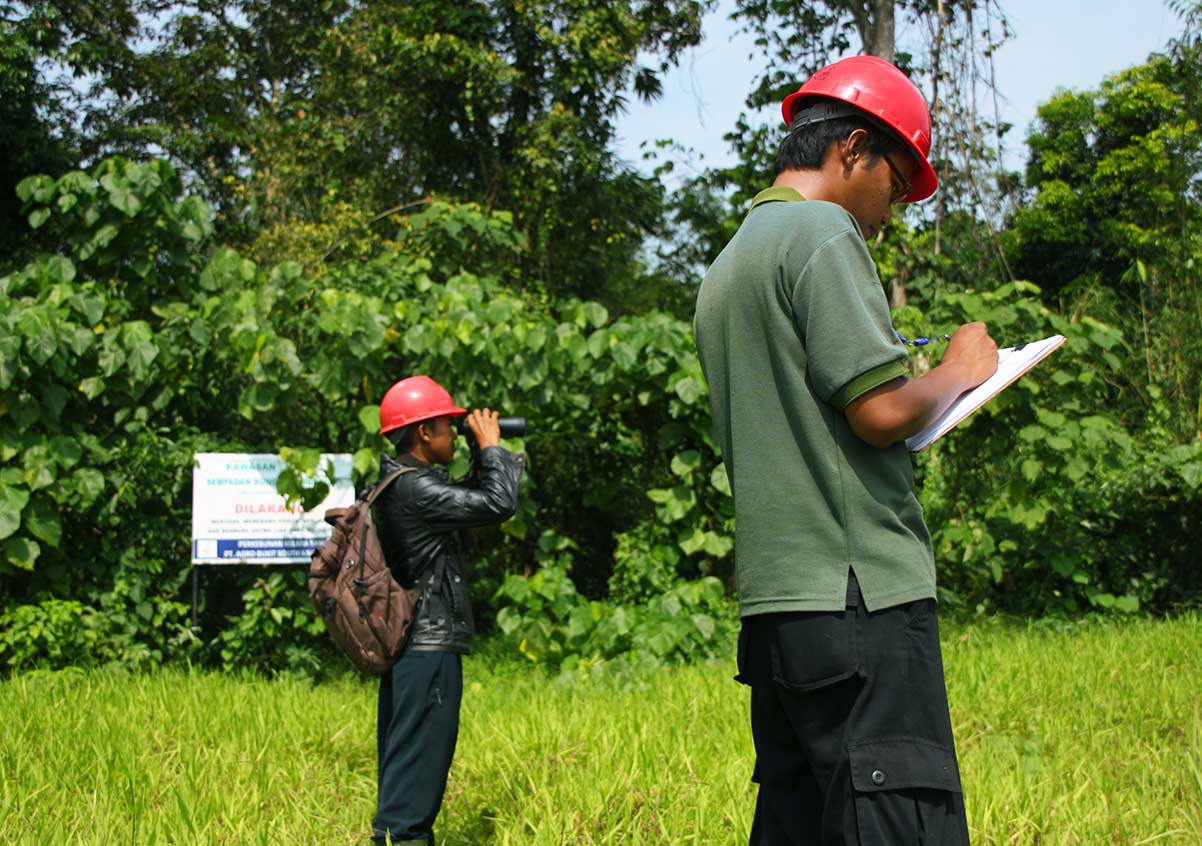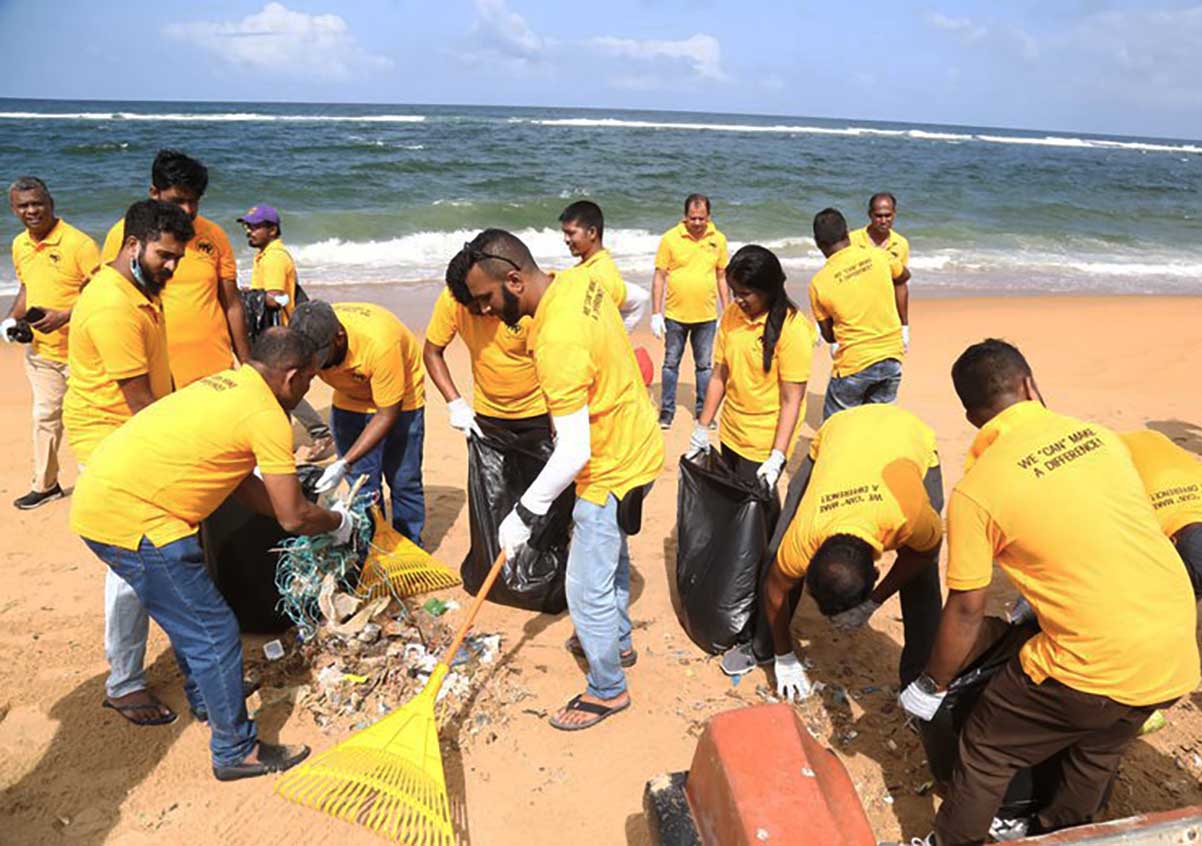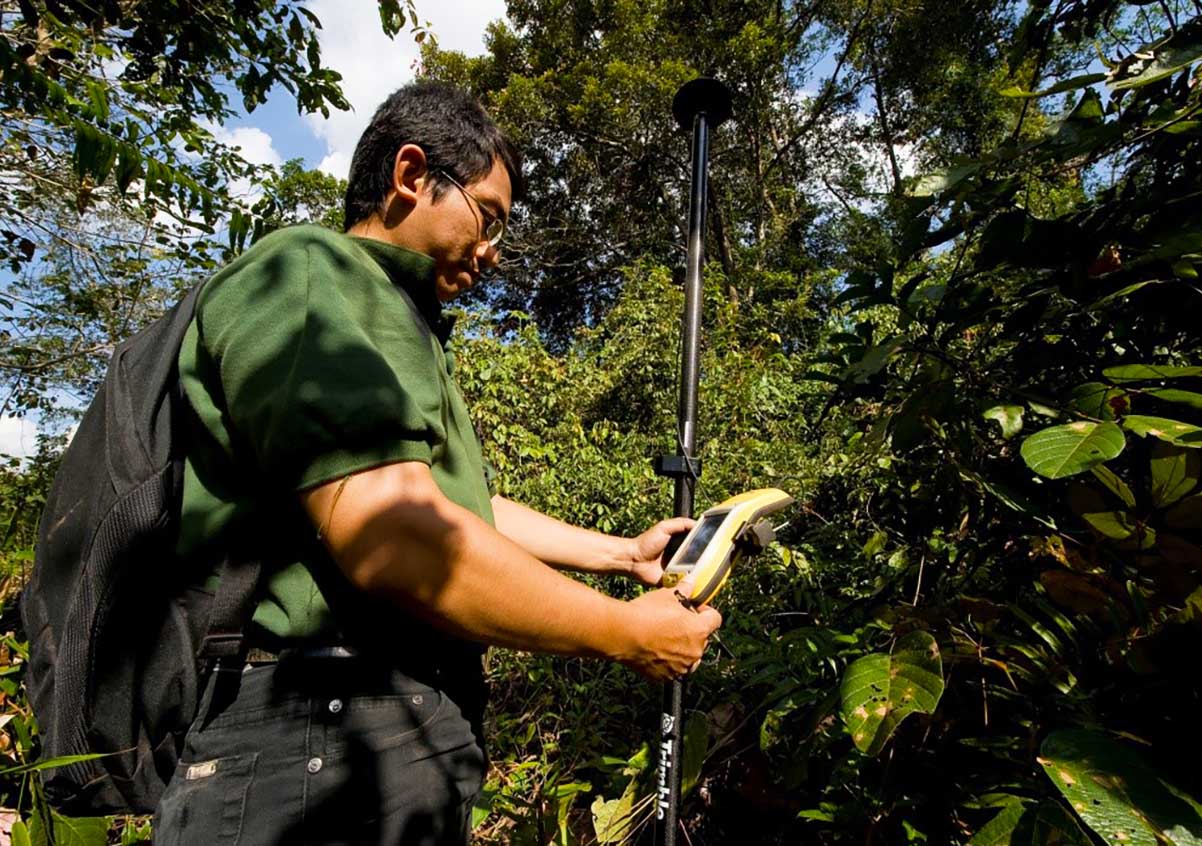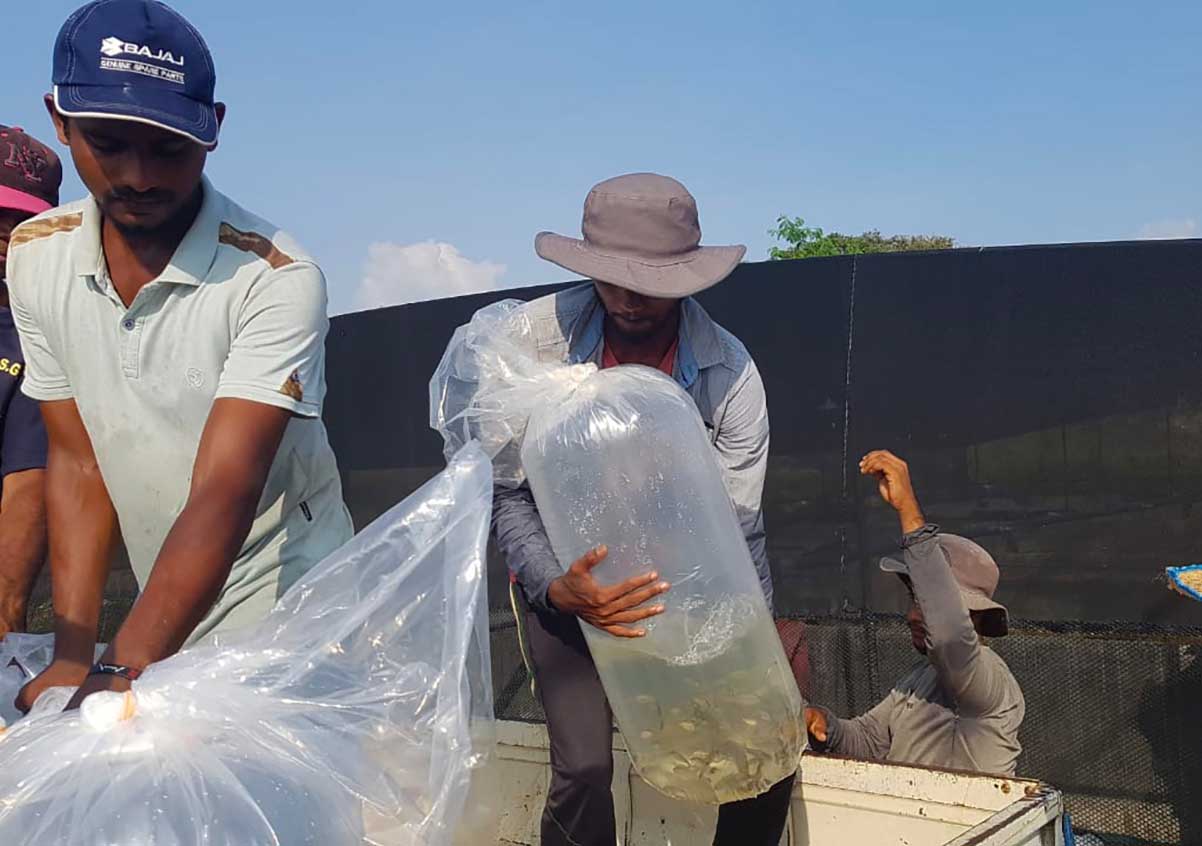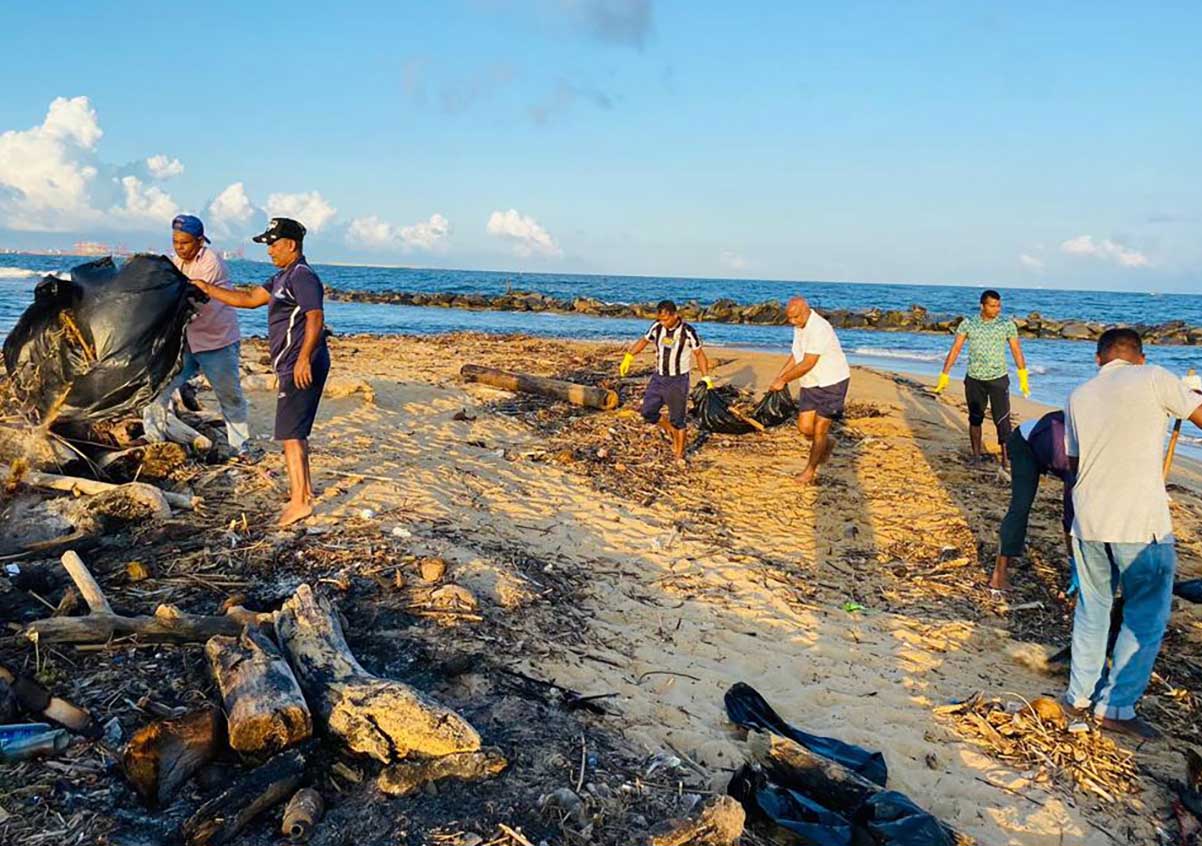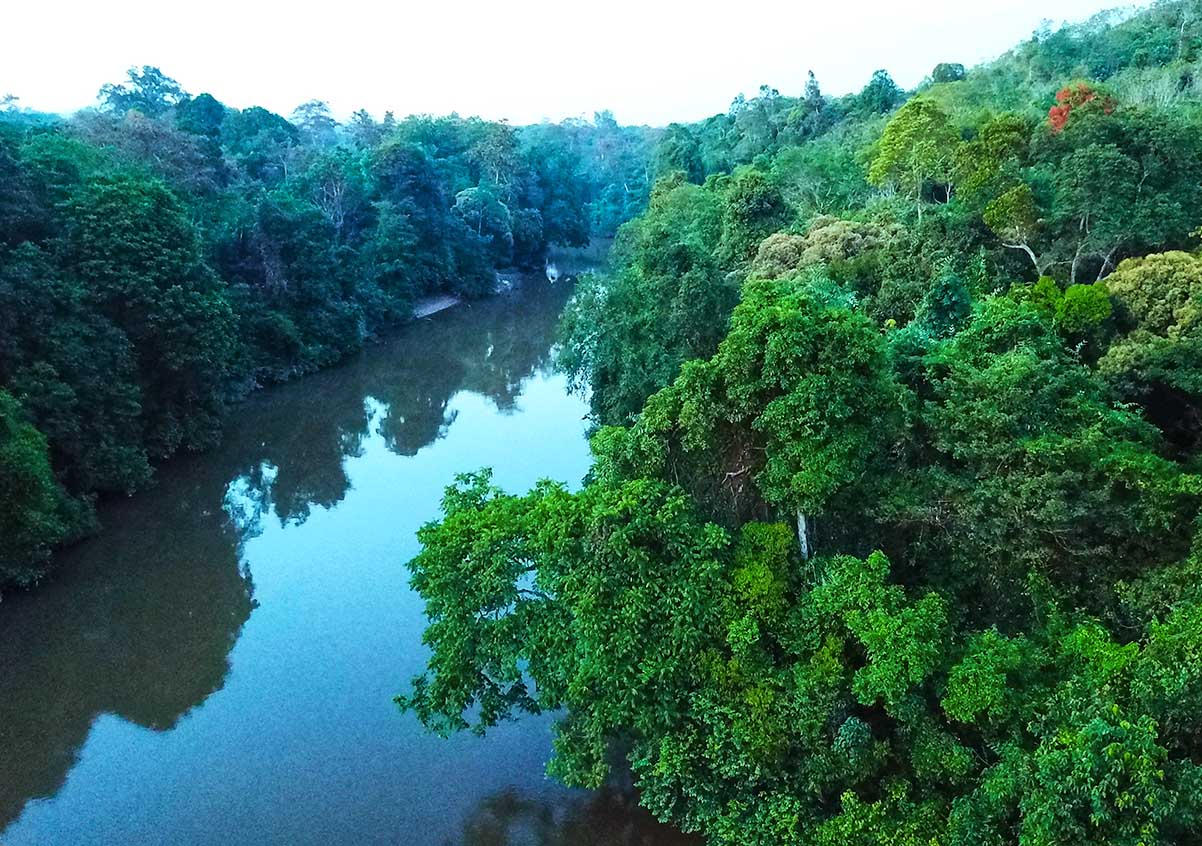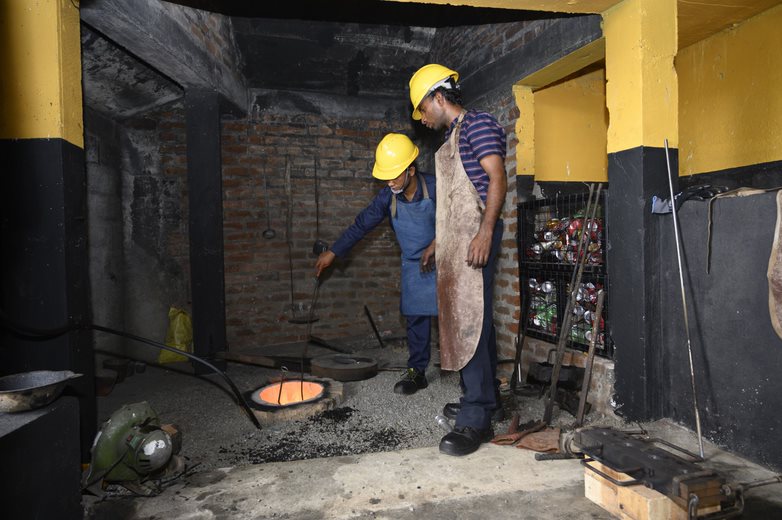Environmental
Projects
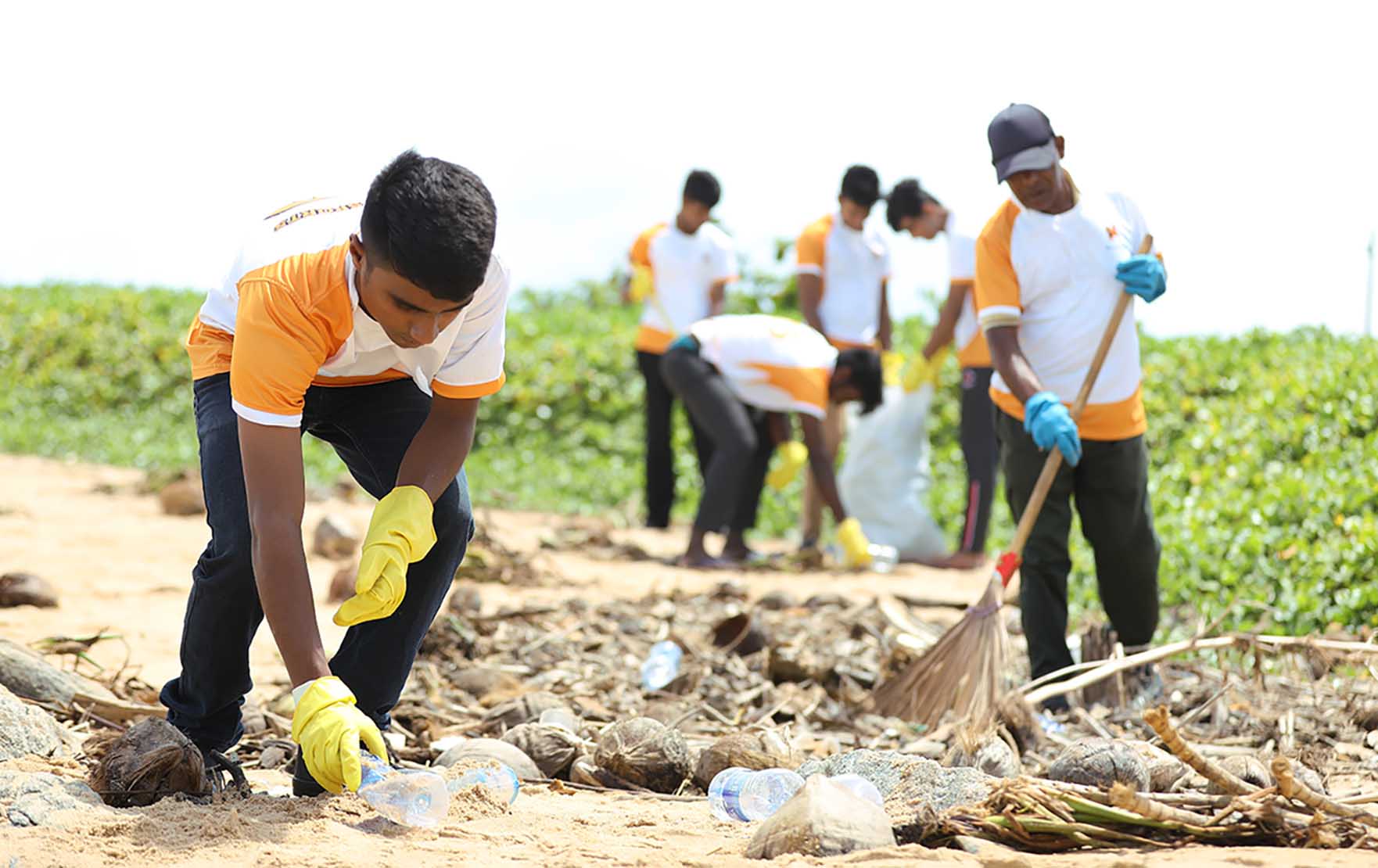
Roundtable on Sustainable
Palm Oil Certification
The Roundtable on Sustainable Palm Oil (RSPO) promotes the production of sustainable palm oil through a membership and certification system with a strong set of principles and criteria from transparency and compliance to new planting and stakeholder engagement.
Goodhope Asia Holdings Ltd became a member of the RSPO in 2014. The membership incorporates all Goodhope subsidiaries, including our three previous members: PT Agro Indomas (RSPO member since 2006), PT Agro Bukit (RSPO member since 2006) and PT Agro Wana Lestari (RSPO member since 2014).
With this membership of the Parent Company, all of Goodhope Group’s oil palm plantations are expected to follow the principles and criteria of the RSPO.
Five of the Goodhope Group’s oil palm processing mills have been awarded RSPO Certification and its two edible oils and fats manufacturing facilities in Malaysia have been awarded RSPO Supply Chain Certification.
Indonesian Sustainable Palm
Oil (ISPO) Certification
The Indonesian Sustainable Palm Oil (ISPO) certification scheme regulated by the Indonesian Ministry of Agriculture, serves as a system to enhance Indonesia’s competitiveness in the global palm oil market and reduce greenhouse gas emissions from the Indonesian oil palm plantations and operations.
Goodhope commenced the ISPO certification process for its plantation companies in 2016 and is currently pursuing ISPO certification for all its plantations.
ISO 14001 and
OHSAS 18001 Certification
Our plantations prioritize compliance with industry standards, as demonstrated by their retention of certifications for Environmental Management System (ISO 14001) and Occupational Health and Safety (ISO 45001).
ISO 14001 (EMS) - Environmental
Management System
Our adoption of the ISO 14001 standard reflects our commitment to enhancing environmental performance and complying with relevant laws and regulations. This standard promotes several key principles:
1. Improved environmental performance through the
implementation of best practices.
2. Waste
reduction, conservation of natural resources, and
minimizing environmental impact.
3.Compliance with
environmental laws, regulations, and international
standards.
4. Systematic and continuous
improvement.
We are proud to announce that five of our Group’s plantation subsidiaries (PT Agro Indomas, PT Agro Bukit, PT Rim Capital, PT Agro Wana Lestari, and PT Karya Makmur Sejahtera) have achieved ISO 14001 certification, demonstrating their dedication to environmental excellence.
ISO 45001 (OSH: Occupational
Health and Safety)
Our health and safety risk analyses help to develop recommended safety procedures complying with ISO 45001 Occupational Health and Safety Management System. Currently, a total five of the Group’s plantation subsidiaries – PT Agro Indomas, PT Agro Bukit, PT Rim Capital, PT Agro Wana Lestari, and PT Karya Makmur Sejahtera – are ISO 45001 certified.
“PROPER” Programme
The “Programme for Pollution Control, Evaluation, and Rating (PROPER)” is an environmental performance rating system developed by the Indonesian Ministry of Environment in 1995. It aims to encourage Companies to follow environmental regulations and achieve excellence through sustainable development principles. In 2010, it was introduced to the palm oil industry to encourage compliance by Companies operating mills in their plantations.
PROPER uses a five-color rating scheme to grade pollution control levels, with gold in Indonesia being the highest rating and black the lowest rating. The environmental performance of the sector’s mills and plantations is also monitored and rated by the Ministry of Environment. This monitoring and rating exercise is legally binding, subject to immediate sanctions for those with a black rating or non-compliance.
Biodiversity Conservation
The Group is committed to implementing robust practices aimed at the protection and restoration of ecosystems within each country it operates, thereby preserving the biodiversity and natural habitats of the environment. Each sector of the Group has actively contributed towards this initiative through the implementation of distinct action plans. Through these efforts, the Group effectively contributes to sustainable development and assumes its responsibility in safeguarding the environment for future generations.
Preserving biodiversity is a key responsibility for sustainable oil palm plantations in Indonesia, which is home to rich and diverse ecosystems and rare species. The Company prioritizes river bank integrity, ecosystem vitality, and endangered species protection through initiatives such as rehabilitating riparian zones and creating animal corridors. Additionally, the Company partners with conservation and law enforcement agencies to educate local communities on biodiversity preservation.
Rehabilitation and
Wild-Release of Orangutans
We are dedicated to saving orangutans, an endangered species in Indonesia. Since 2012, we have funded the Borneo Orangutan Survival Foundation (BOSF) for the protection, care, conservation, translocation and rehabilitation of orangutans with the aim of returning them to the wild. Our agreement with BOSF was extended to 2018 and covered the funding of 64 orangutans. In 2011, we also signed an MoU with the Orangutan Care Center and Quarantine (OCCQ) of the Orangutan Foundation International (OFI) to support the adoption of 10 orangutans and fund their food research by building a herbarium. We continue to support OCCQ by funding the botanist for the herbarium, which is the only such research center in the region.
Protecting High Conservation
Value (HCV) Areas
The Company recognizes the importance of preserving
wildlife habitats, rare ecosystems, and cultural
areas
within its concession lands and plantations.
The Company’s use of High Conservation Value (HCV) and High Carbon Stock Approach (HCSA) assessments has led to the identification of 21,513 hectares of land for conservation. This includes biodiverse forests for rare species, areas crucial for ecosystem services, and culturally significant regions for local communities. This underscores the Company’s commitment to responsible land management, ecological preservation, and community engagement.
Water Management
Water is crucial for the Company’s plantation operations, which rely solely on rainwater. The water for nurseries, offices, housing, and mill processing of Fresh Fruit Bunches (FFB) is obtained from reservoirs and waterways managed by us. During milling, 50% of the water is lost through evaporation in steam boilers, while the remaining water is treated, reused, and returned to the plantations as fertilizer. The Company takes several measures to conserve and manage its water resources, including:
- Recycling wastewater for cleaning purposes.
-
Protecting waterways during plantation development to
prevent hazardous chemical and
effluent runoff. - Designating areas for washing Personal Protection Equipment (PPE) used by employees.
- Improving water retention systems on its plantations.
- Monitoring and providing clean water to local communities and workers.
Strengthening of Aquatic
Biodiversity
Together with the National Aquaculture Development Authority (NAQDA), Giritale Hotel launched an initiative to provide selected local fishermen with tank fish and breeding nets as part of an effort to improve the local fish population.
Beach Cleaning
The Leisure sector staff conduct regular sessions to clean up the public beach area surrounding the hotel property, as a part of their annual CSR initiatives. This beach clean-up program is a collective and continuous effort that engages all hotel departments. They participate in this initiative on a rotational basis. Furthermore, the hotel staff also gathers any debris that has been washed ashore and ensures its appropriate recycling.
Recycling and Waste Management
The beverage sector is demonstrating a strong commitment to responsible resource consumption by setting annual targets for reducing electricity, furnace fuel, and water usage. Their dedication extends to packaging practices, achieving impressive return rates of 86% for glass bottles and 98% for plastic crates in 2022/23. They further minimized their environmental impact by using 45% recycled glass in new bottles and 70% recycled plastic in new crates.
Waste management is another top priority. In 2022/23, they converted a significant amount of waste: 22,000 MT through reuse, 2,100 MT through recycling, and 14 MT through upcycling.
The “Melting Point” initiative of the sector revitalizes a local business focused on aluminum can upcycling. They partnered with the University of Peradeniya and the Central Environment Authority of Sri Lanka to improve operational efficiency and safety. Additionally, they connected these manufacturers with premium retailers like Odel and Daraz, strengthening the collection chain and promoting responsible aluminum can disposal.
To further encourage responsible disposal, “Melting Point” designed and distributed 118 can collection units to designated outlets. This facilitates the collection and recycling of used cans, contributing to a circular economy that maximizes the value of resources.
The beverage sector is also focused on the management of Waste Material. They have ongoing joint projects with the Western Province Waste Management Authority and several private sector organizations. They are also exploring potential collaborations with the Sri Lanka Institute of Biotechnology.
